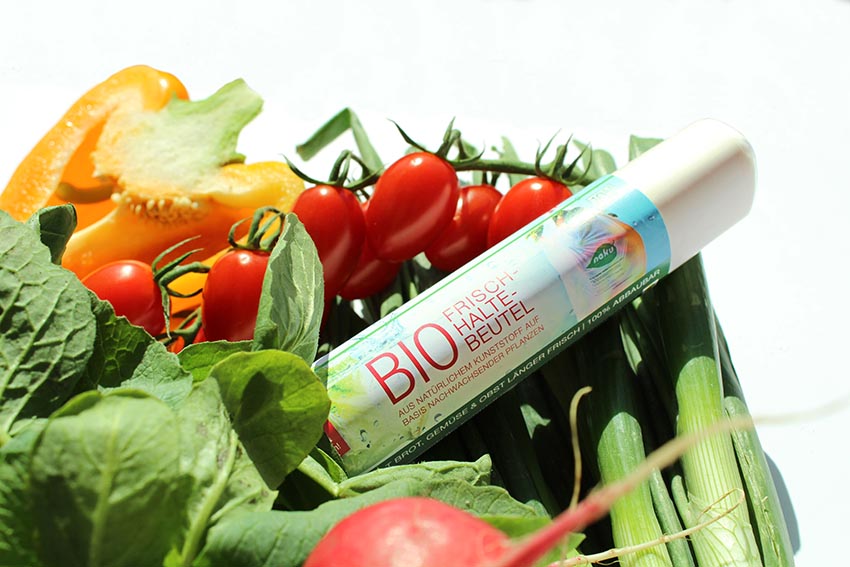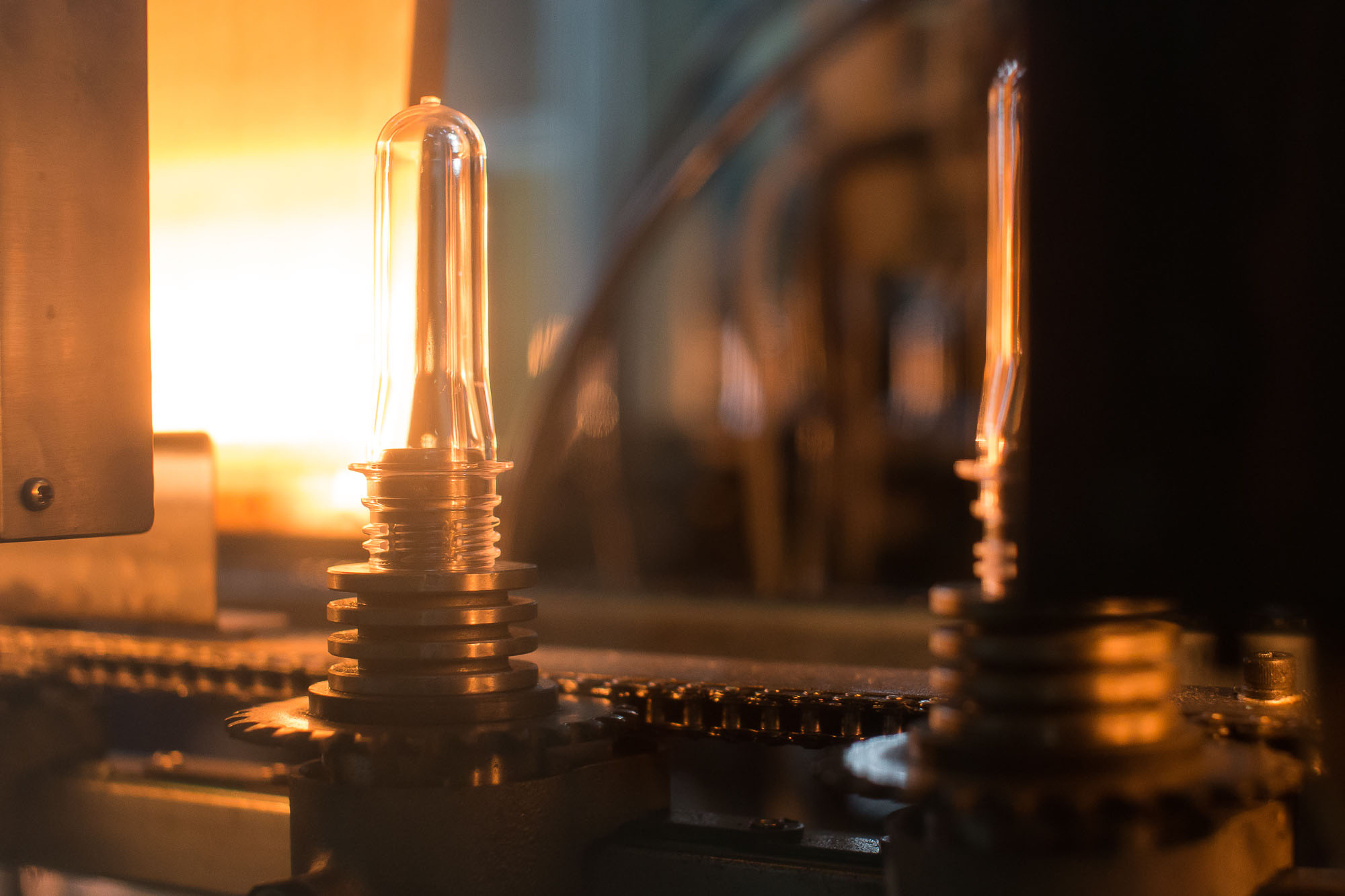NaKu e.U. is an Austrian company founded in 2007 that uses innovative technologies to develop sustainable packaging solutions. In 2011, it launched its first plant-based bottle and has since then gained extensive experience in meeting production, filling and shelf-life challenges.
Easy Engineering: What are the main areas of activity of the company?
NaKu: We are experts in the field of bioplastics and offer our know-how in processing methods and logistics to various companies. Our customers are, on the one hand, consumers who buy directly from us, or small and large companies that purchase their packaging from us. Our main field of activity is bags and bottles, but we also offer companies to develop individual projects together. For instance, we developed a bioplastic-dummy for a baby product company.

E.E: What’s the news for 2021 about new products?
NaKu: We have a lot of different projects going on at the moment. We hope that most of them will be completed this year.
On the one hand, we want to expand our portfolio in the area of bags. That’s why we are currently developing an organic waste bag, which is in the process of being finalized.
On the other hand, we also want to work on packaging solutions that are totally different to our current portfolio. For instance, a plant-based clothing cover for dry cleaners is currently in development. Cleaned clothes are wrapped in plastic for pick-up by customers. This creates huge amounts of plastic which could actually be avoided. Our clothes cover are therefore made of renewable and compostable plastic, which is far more environmentally friendly than conventional plastic covers.
Other projects such as bottle caps made of algae and side products are as well in process.
However, we are not only working on the launch of new products, we also want to ensure that our products are recycled in the long term to decrease our ecological impact even further.

E.E: What are the ranges of products?
NaKu: At the moment, the range mainly includes bottles and various types of bags: carrier bags, keep-fresh bags and freezer bags.
All of NaKu’s products are made from plant-based materials and are compostable. The starting material is usually corn starch, which can then be further processed into polylactic acid (PLA). Everyone who has ever had a sore muscle knows lactic acid. The body knows it and can break it down well, so the material is completely harmless. It is used to make all things that need to be stable, such as bottles. If you process the starch in a different way, you can make bags out of it that break down more quickly.
E.E: At what stage is the market where you are currently active?
NaKu: Currently the market is in transition. Companies need to advance much further in the area of sustainability and ecology and develop future-proof solutions to stay at the pulse of time. This includes also the entire packaging industry that needs to adapt their strategies towards more sustainable packaging solutions. Thence, oil-free materials are becoming more and more important and research is being conducted to find new ecological alternatives. For example, plastics made from algae. On the other hand, not only are new alternatives becoming more and more trendy, but also the recycling of existing materials such as PET or even reusable packaging.
For NaKu, all of these approaches are very important. Reusable packaging is the most sustainable one, but not always possible or the best solution. In that case alternative resources such as plant-based plastics that are renewable, recyclable and compostable are the best solution.

E.E: What can you tell us about market trends?
NaKu: People do not want plastic anymore. As consumers become more and more aware of environmental problems and increasingly adjust their purchasing behavior accordingly, there is a strong trend in this direction towards biological alternatives. Furthermore, government regulations, such as the plastic bag ban in Austria, enhance the pressure on the market. Therefore, the retail sector had to shift to plastic bag alternatives such as bioplastic bags.
One of our advantages is that our products are made of one material which makes recycling much easier. NaKu products are also much more environmentally friendly, because we use renewable materials that are compostable. Hence, no microplastic emissions will occur. In addition, the production of our natural polymer requires lower temperatures and thus less energy.
E.E: What are the most innovative products marketed?
NaKu: One of our most innovative products is a packaging solution for cosmetics that was developed together with freemee, an Austrian natural cosmetics company. The packaging consists of two parts. One part is reusable and made out of wood and glass. The other part is made out of Polylactid acid (PLA), a natural polymer that connects many lactic acid molecules, where the cream is inside. With this project we found the most sustainable and still practical solution for the packaging of cosmetics.

However, also our other products can be considered as very innovative. For instance, our NaKu Fresh-storage-bags are bags that keeps food longer fresh. Studies have shown that vegetables, fruits and bread stays fresh for a longer time when it is wrapped within the Fresh-storage-bags. Salad is for example two weeks longer fresh compared to storage within a plastic bag. Thus, less food is being thrown away and the impact on the environment reduced.
E.E: What estimations do you have for 2021?
NaKu: Plastic bags have been banned in Austria since January 2021, but plant-based bags like our NaKu bags are still allowed. But due to the pandemic, many shops were closed for a long time. Therefore, we expect a significant growth in our sales now that shops have reopened after a long shutdown and the economy is recovering from a major setback.
Moreover, sustainability has become a trend and it becomes also more is also becoming increasingly important in the packaging industry. The pandemic will soon be over and environmental questions will then get a lot more attention in the media than during the pandemic. This will further enhance the trend towards plastic alternatives. That is why we believe that 2021 and the next few years will be very important for us as many customers will be looking for more ecologically friendly packaging solutions.

